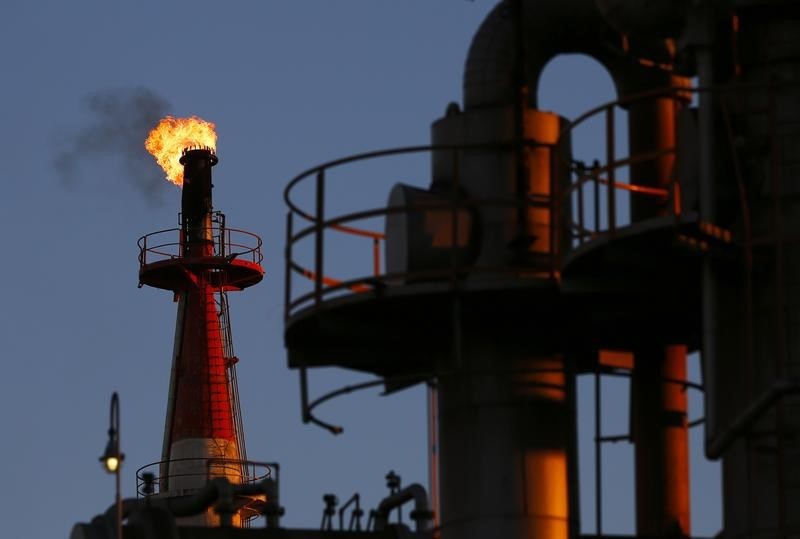Investing.com — Oil prices rose Thursday, rebounding from a one-month low after traders priced in a diminished chance of more interest rate hikes from the U.S. Federal Reserve, denting the dollar.
By 09:55 ET (13.55 GMT), the futures traded 1.4% higher at $81.55 a barrel, while the contract climbed 1.4% to $85.78. Both benchmarks settled at their multi-weeks lows in the previous session, having dropped around 10% in October.
Crude benefits from more dovish Fed view
“The Fed’s decision to keep interest rate hikes on pause for a second consecutive time has bolstered economic sentiment and supported commodity prices,” said analysts at ING, in a note.
Fed Chair said in a post-meeting briefing that the Fed still had a long way to go before inflation reached its 2% target. But he also noted that financial conditions had tightened substantially this year, and cited more risks to the economy.
These comments saw the dollar sink in overnight trade, as traders priced in a smaller chance of another interest rate hike in December.
A weaker dollar benefits commodities, including oil, which are priced in the greenback, as it makes the commodity cheaper for international buyers.
The crude market had suffered a difficult October, partially on fears stronger than expected economic data will lead the Fed to keeping interest rates higher for longer, potentially weighing on economic growth and curbing oil demand in the world’s largest consumer.
Small U.S. crude inventory build
The importance of the Fed meeting meant that markets largely traded past the weekly U.S. inventory data, with official numbers from the , released Wednesday, showing a slightly smaller-than-expected build in oil inventories over the week to October 27.
Distillate inventories saw a smaller-than-expected decline, while gasoline inventories saw an unexpected, albeit limited build.
“Total crude oil inventory (excluding SPR) at around 421.9MMbbls remains about 5% below the five-year average at this point in the season,” said ING.
Investors will also be watching for developments in the Middle East, which has kept oil markets on edge as a wider conflict could disrupt oil supplies around the region.
European demand issues mount
However, demand could face a hit going forward in Europe, a major energy consuming region, after data showed contracted further in the eurozone in October, with the Purchasing Managers’ Index falling by 0.3 points on the month to 43.1 – below the 50 level that signals contraction.
Additionally, the held interest rates steady at a 15-year peak, and said it did not expect to cut them any time soon as it fights to “squeeze out of the system” the highest inflation of the world’s major economies.
(Ambar Warrick contributed to this item.)
Read the full article here





